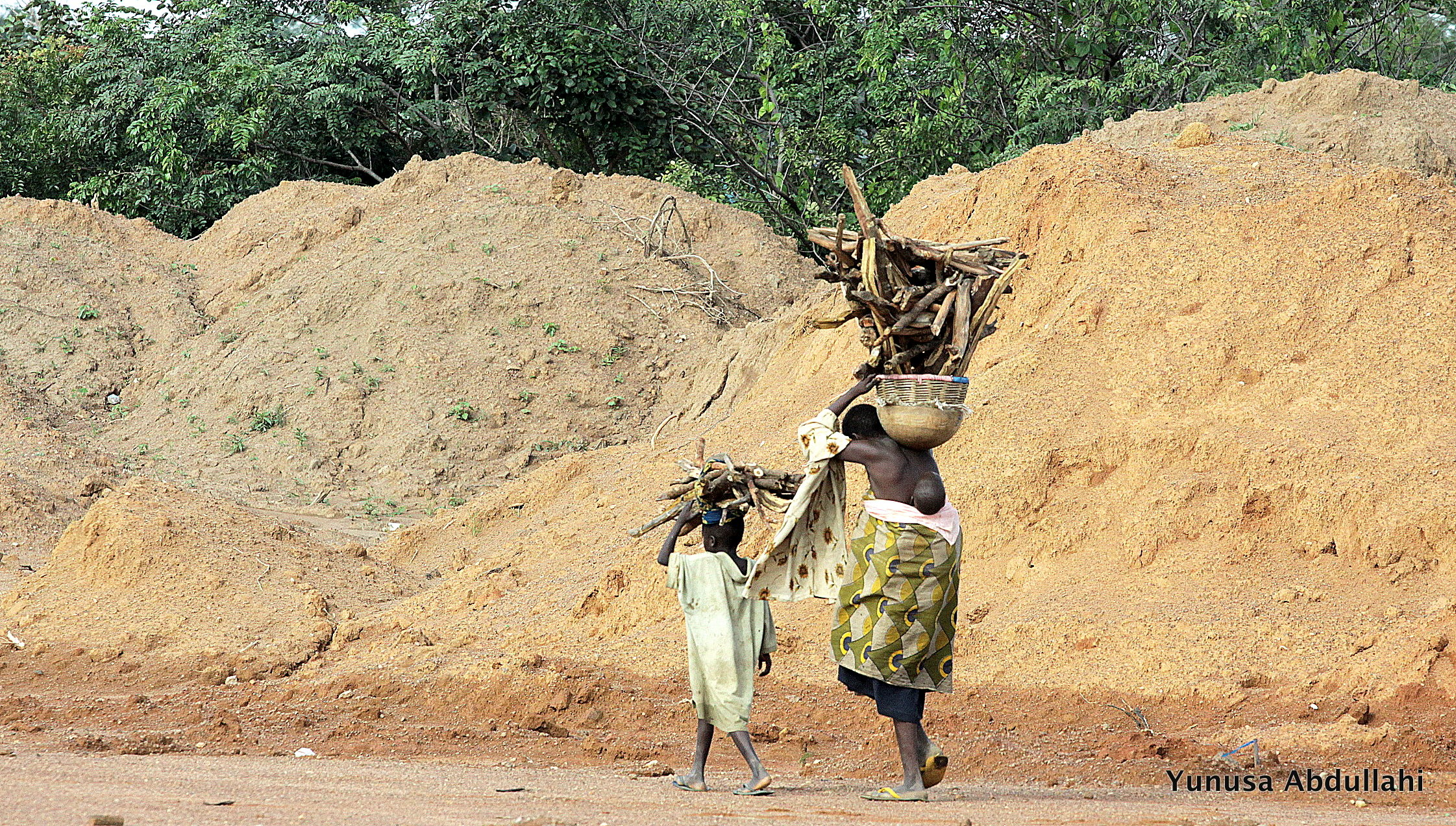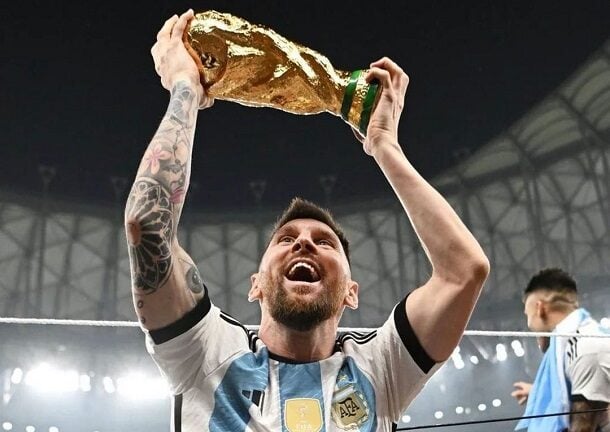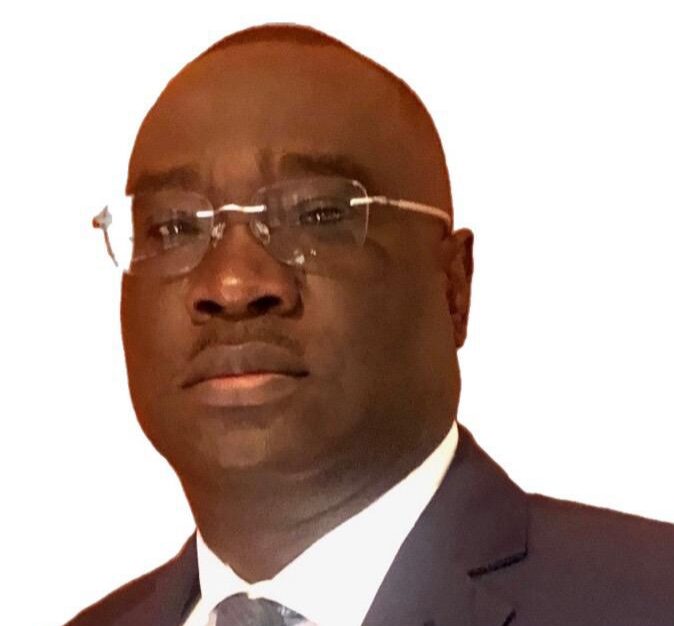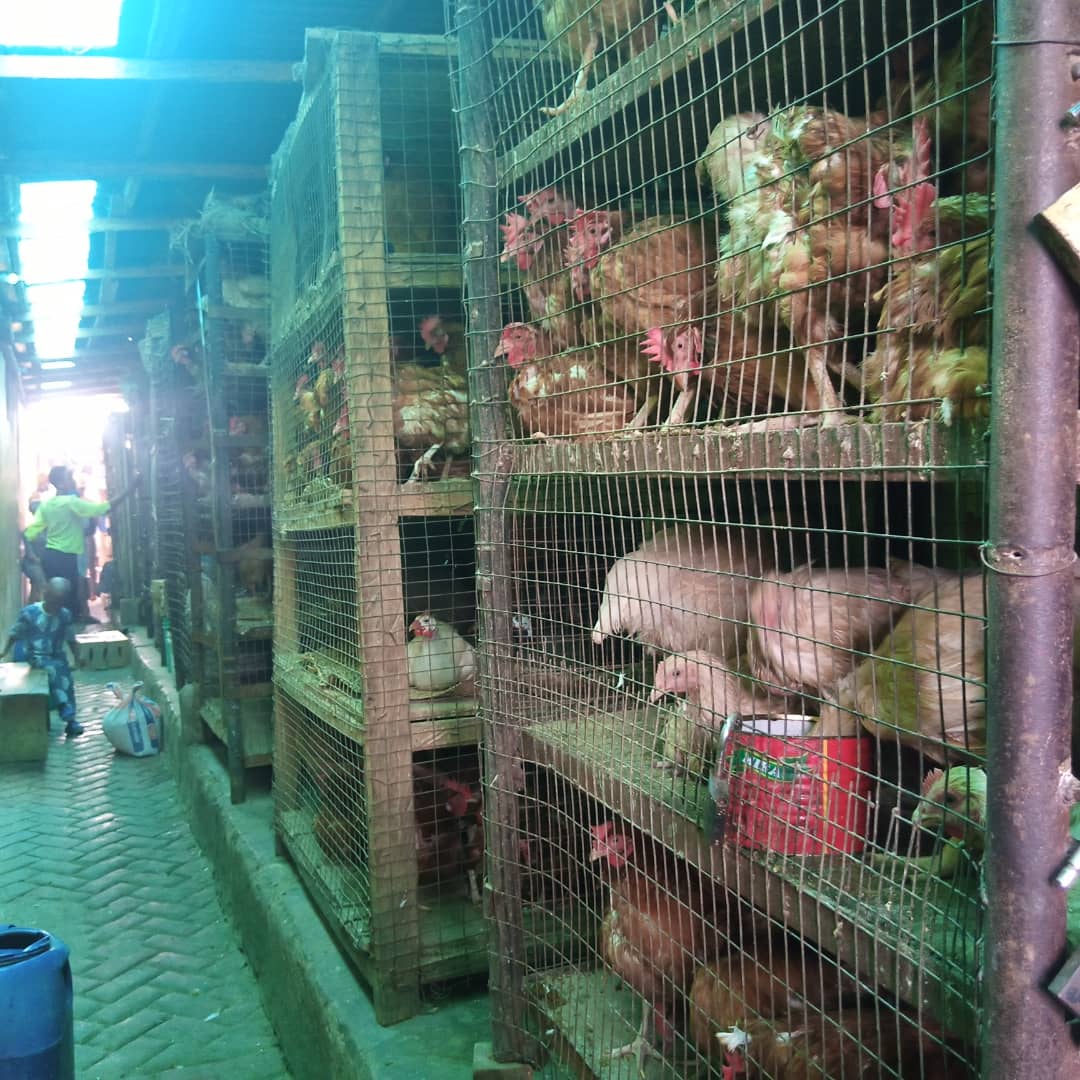When you are told there is a problem, what is your response? There is the “ntor” corner that will usually gloat: we told you so, we warned you, serves you right, etcetera. There is the corner that amplifies the problem with the help of innovative superlatives and unrivalled adjectives. In another corner, they are more interested in the statistics for data analysis. In yet another corner, they are asking: so, what next? What is the solution? What shall we do to be saved? Can we apply A, B, C and D to tackle this challenge? I would say every corner serves a purpose in any society, no matter how negative some sound. In fact, this world will be quite boring if everybody is in the same corner.
The National Bureau of Statistics (NBS) released the 2022 multidimensional poverty index (MPI) survey in November with its very disturbing figures staring us in the face. We have a problem, a big problem. As many as 133 million Nigerians are classified as “multidimensionally poor” in the report. This is not to be confused with World Bank’s international poverty line (IPL) which uses an income below $1.90 per day (up from the $1 pre-2015) as the benchmark for measuring poverty. There is also the human development index (HDI) of the United Nations Development Program (UNDP) which uses a combination of per capita income, life expectancy and education to measure poverty.
The 2022 MPI goes much farther by deepening the definition. It includes indicators such as how quickly a Nigerian can receive medical attention as well as access to cooking fuel and pre-primary education. It goes beyond the monetary measurement of poverty to the multidimensional aspects — which will not only tell us that people are poor but also list factors that predispose them to poverty. It highlights child poverty and picks up the physical and cognitive aspects of early childhood development — undernutrition, immunisation and intellectually stimulating activities. The gruesome figure from the rural areas is that 90 percent of the children are experiencing poverty. This is brutal.
The 2022 MPI provides several intriguing data. The poorest Nigerians, by percentage, live in Sokoto state, where the multidimensional poverty rate is 91 percent. Nine out of every 10 Sokoto residents are multidimensionally poor. This contrasts with Ondo, where the figure is 27 percent. It doesn’t mean Ondo state plays host to the richest Nigerians, but that it has the lowest percentage of Nigeria’s poor. In absolute figures rather than percentages, Kano state takes the dubious cake with 10.5 million residents classed as multidimensionally poor. Just imagine that the entire population of UAE is 9.8 million. Abia has the least multidimensionally poor with 1.1 million (Ondo has 1.3 million).
Advertisement
Again, it should not be surprising that the most deprived people live in rural areas — 72 percent of them are poor, according to the MPI. For the urban areas, 42 percent are poor. The report says 70 percent of Nigerians live in rural areas. That means eight out of 10 of them are considered multidimensionally poor. If we go by the regional data, the north is by far poorer than the south: nearly seven in every 10 poor Nigerians live up there. If we go state by state, either by population or percentage, the poorest states are in the north. All poverty surveys always place northern Nigeria, specifically states in the north-west and the north-east, at the top of the most afflicted areas.
This is not the whole story, though. Bayelsa, the smallest oil-rich state in population, is among the “intensely poor” in terms of proportion. This is a bit surprising. In the sharing of federally collected revenue in Nigeria, Bayelsa should rate as the highest per capita. The state has a difficult terrain which makes building infrastructure a little bit more expensive, but this cannot satisfactorily explain the nutritional poverty and the lack of access to healthcare. Rather than play the terrain card, the Bayelsa government would do well to look deeper into the problem and see how it can deploy more effective strategies to tackle the multidimensional poverty. Bayelsa sticks out like a sore thumb.
Here we go. What do these statistics mean to you? It depends on the corner you are dining with. To some, it means President Muhammadu Buhari and the APC have failed woefully and driven 133 million Nigerians into poverty. “We warned you not to vote for APC; serves you right!” The president, on his part, has pointed fingers at the states for their key role in the underdevelopment of Nigeria. The governors have fired back, saying the federal government should take full responsibility because it has been unable to keep Nigerians safe and there can be no development when we are stuck in the Hobbesian state of nature, where life is “poor, nasty, brutish, and short”. So it goes.
Advertisement
Politicians must politick, just as the cock must crow and the dog must bark. The PDP and other opposition parties have every right to play up these poverty figures and use them to attack the APC government. That is in order, as far as politics is concerned. You don’t see a political advantage and not use it, except you are not true to type. As I have said time and again, there is nothing PDP says against APC today that is not justified. APC came to power in 2015 by discrediting PDP, casting the party as incompetent and clueless. It is now the return leg for PDP — and they are having a ball casting APC as more incompetent and more clueless. Politicking is the food of a democratic order.
Having said that, though, I am the least interested in the politics and counter politics of finger-pointing. Buhari can blame whoever he likes. Governors can say whatever they want. PDP can gloat as loudly as they wish. APC can keep griping for all you care. That is none of my business. I am more interested in the way forward. It is those digging the grave that are ready to bury the dead; those crying are only making a noise. So, what next? Now that we have what looks like a reliable dataset on the depth and width of poverty in our country, how do we get out of this hole? As we would say, “Nigeria has no business with poverty”. These depressing statistics should stir up something in us.
If we dispassionately look at the MPI indicators, we will have come to one conclusion: there is enough blame to go round. There are 15 indicators under four broad areas: health (nutrition, food security, time to healthcare); education (school attendance, years of schooling, school lag); living standards (water, water reliability, sanitation, housing materials, cooking fuel, assets); work and shocks (unemployment, underemployment, security-shock). If we look at them again, we will realise that many of these items fall under the shared ambit of federal and state governments. In fact, most are under local councils. It is, thus, unhelpful to place the blame on just one tier of government.
Nigeria practises a very interesting strain of federalism where emphasis is always on the sharing of revenue rather than the discharge of responsibilities. We can attribute this mindset to the political economy. It is a zero-sum game, where my gain is your loss. Therefore, we are perpetually stuck with arguments over fiscal federalism, true federalism, resource control, derivation, and such like. The “kill and eat” political game will not end today or tomorrow, or the day after tomorrow. I have resigned myself to that. However, there can be a third way where the focus of our conversations will be on how we can “cooperate” to tackle the poverty ravaging Nigerians and jeopardising the peace.
Advertisement
One fundamental fact that must guide our thinking is that every poor Nigerian is a threat to all other Nigerians. It doesn’t matter what region or religion. The Boko Haram insurgency used to be seen as the problem of Borno state but, in reality, every Nigerian is affected. The billions of dollars we have been spending on securing and restoring the north-east could have been better spent on other items, especially education and healthcare. The impact of insecurity on agricultural activities has affected food prices nationwide. If we have this reality at the back of our minds, we will not need to be begged to accept that it is in the interest of the collective to tackle the poverty menace.
Even if we break up Nigeria — which many see as the ultimate solution to our national development challenges — the new entities will still not be safe from the spill-over effects of poverty and insecurity in their neighbouring countries. The US is rich, very rich, but Mexico that is not as rich has become its major headache, so much so President Donald Trump said he was going to build a wall to stem the inflow of migrants. A Yoruba proverb says a rich man in the midst of poor relatives is also a certified poor man. Boko Haram operating in Nigeria has remained a constant threat to the peace of Cameroon and Chad. That is why we should be guided. We need to rise above certain sentiments.
Several factors contribute to poverty and every tier of government must look in the mirror instead of pointing fingers. I was discussing with a minister recently and I was wowed by his take on healthcare which gave me a deeper perspective. He said healthcare is not just about the provision of hospitals, doctors, drugs and equipment. “Healthcare starts with the water you drink and the environment you live. If the water is safe and the environment is clean, your chances of ending up in the hospital are reduced,” he said. “No country has enough hospital beds to cater for all its citizens at the same time, but keeping them out of hospitals is the key strategy.” In fact, infrastructure itself is healthcare.
How do we tackle the inequality in the land? How do we get more children off the streets and enrol them in schools? How do we improve the protein intake of schoolchildren so that their brains can develop properly? How can we make water available to the vulnerable? How can we run an inclusive system that will not discriminate against women, children and people living with disabilities? How can the primary healthcare system work for the poor so that common ailments will be tackled and prevented from progressing to something irreversible or terminal? How can we secure lives and property? We need to sit down as a people to design and deploy the necessary interventions.
Advertisement
If you ask me, finding the solutions should be dominating national discourse. When we are done with politicking, gloating and blame-sharing, we should put heads together to work out how to get out of this hole. Believe me, the problem will not solve itself. With Nigeria’s population ballooning every day, things can only continue to get worse if we do not wake up and smell the coffee. The Nigeria we have today is a product of the choices we made or failed to make yesterday. If we do not change course and tact today, the Nigeria of tomorrow would be worse. If we are wise, our collective energies should be poured into addressing the multidimensional issues raised by the MPI.
AND FOUR OTHER THINGS…
MERRY CHRISTMAS
Advertisement
As a primary school kid, I used to look forward to Christmas. It was one season full of fun. I enjoyed watching the re-enactment of the Nativity Story on Christmas Eve. I loved the Christmas carols, the new dress, the new shoes, the fake wristwatch, the “knockouts” (bangers), the jollof rice and the pounded yam. Our uncles and aunts along with our cousins from far and wide always congregated in the village. It was certain we were going to be “dashed” some crisp naira notes. I enjoyed my Christmases to the fullest. I still live on those memories. I now spend my Christmas remembering and missing my grandmother! Nevertheless, I wish all my readers a Merry Christmas. Felicitations.
BUHARI AT 80
Advertisement
On Friday evening, I attended the 80th birthday dinner of President Buhari at the Presidential Villa in Abuja. A documentary on him, produced by Ose Oyamendan, the Nigerian-American filmmaker, was aired at the event. It brought back memories of Buhari’s promising presidential runs from 2003 to 2015. He clearly had the desire to make a difference. But, as he quickly discovered when he finally became president, Nigeria is a tough nut. While I believe that the country can be transformed, I am not deceiving myself that the job will be done by one person or in the life of one administration. Buhari has left good footprints in infrastructural development, but the promised land is still far. Reality.
CASHLESS NIGERIANS
Advertisement
The transition to the new naira, which is also expected to spur cashless transactions, has not taken off on a supersonic space from all indications. The new notes are still not readily available, suggesting that the Central Bank of Nigeria (CBN) might not be ready. Yet, we have just five weeks left to dispense with the old notes. Meanwhile, electronic payment channels are not operating at optimal levels, apparently because of critical infrastructural challenges. Some transactions do not go through at all and the account holder will be debited. By and large, it will take time for the change to bed in. The CBN must reconsider its timelines, otherwise there would be serious chaos. Flexibility.
LORD HAVE MESSI!
Do you believe in divine favour? I do. Lionel Messi, the football magician from Argentina, had the stars aligned in his favour to cap his glorious career with the game’s biggest prize. Argentina unimaginably lost to Saudi Arabia in their first match and still went on to claim the World Cup after winning two penalty shoot-out lotteries. If Frenchman Randal Kolo Muani had scored in the dying minutes of the final, the story would have changed. I have seen something else under the sun: the race is not to the swift or the battle to the strong, nor does food come to the wise or wealth to the brilliant or favour to the learned; but time and chance happen to them all, says the Preacher. Favour.
Add a comment







